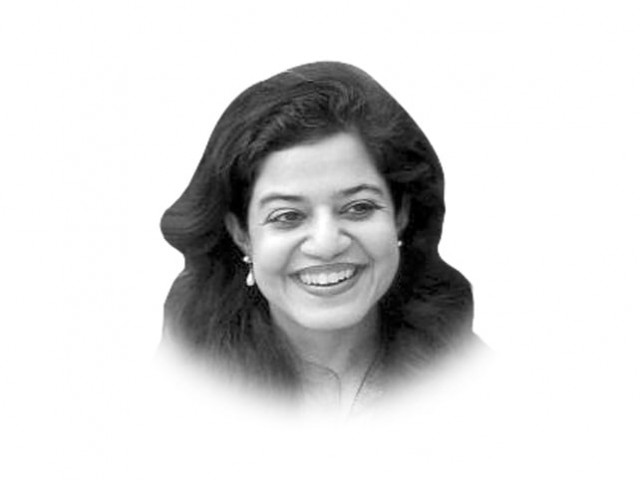Justice only for the dead
The advice sought by a president, pertains to one individual rather than a direct impact on the public.

—The Love Song of J Alfred Prufrock (T S Eliot)
It must be to assuage President Asif Ali Zardari’s evidently outraged sense of justice that the Supreme Court of Pakistan takes up, today, the Reference filed only a week ago by the president to seek its opinion on revisiting the nearly 32-year-old majority decision that had condemned Zulfikar Ali Bhutto to the gallows. Indeed President Zardari’s avowed commitment to correcting this alleged ‘historic wrong’ and heeding the ostensible ‘demand of the people’ for bringing justice to the long dead Bhutto, would be touching, if it were not somewhat incongruous with his disregard for more recent, though equally historic events, as well as his general apathy towards the tribulations suffered by the living!
This is not to suggest that the president is acting beyond his powers: Article 186 of Pakistan’s much-amended 1973 Constitution allows the president to refer a question of law to the Supreme Court provided; he considers it to be of public importance. It is, however, for the first time in the history of Pakistan, that the advice sought by a president, pertains essentially to the fate of an individual rather than to a matter of constitutional interpretation having a direct impact on the public.
In an attempt to discover whether re-opening the issue of Bhutto’s death, no matter how well cloaked it may be in legalese, is of sufficient importance to the Pakistani public of today. I, as a member of the ubiquitous public, recollect the only two occasions when Bhutto entered my consciousness: The first is on a hot April afternoon. I am being driven home from school, and am aware, perhaps because I have been told or perhaps because of the sombre mood, that a man named Bhutto has been hanged. The second memory, though older, is happier: Our car is caught for hours in unmoving traffic (I later understood that this was a rally celebrating Bhutto’s election victory) and my father is waving at and congratulating complete strangers, who are holding up their fingers in the shape of a ‘V’. While he lived, swung a still young and wide-eyed nation from the heights of hope to the depths of despair and it is here, that despite the attempts of successive PPP governments to airbrush his image as a martyr, even a saint, his reputation ultimately rests. Whether he would have performed miracles had he lived, no one knows. One does know, however, that this alleged epitome of democracy and nemesis of military dictators had started his career in a quasi-military government and had risen to become Pakistan’s first, and only, civilian martial law administrator, after having played a somewhat suspect role in the country’s dismemberment. It was also this westernised and seemingly liberal man who had not only encouraged the first sprouting of fundamentalism in Pakistan by declaring Ahmadis non-Muslims, but had also sought ever greater compromises with clerics to retain his gradually loosening hold on power.
If, in the president’s view the resurrection of this brilliant, though controversial, man is a matter of public importance, then perhaps he should be reminded of daily suicides due to poverty, the festering power shortage and acute and rampant corruption in the country. If however the president merely wishes to set the law, indeed even the judiciary, on track he may do so more effectively by filing a reference against the infamous ‘Doctrine of Necessity’ which has derailed democracy in Pakistan more than once. If perhaps all the president seeks is to keep Bhutto’s legacy alive, he may do so more meaningfully by delivering on Bhutto’s promise of “roti, kapra aur makaan”. It is evident however, from the course he has chosen that the president neither wishes to address issues that matter most to the public today, nor to strengthen the rule of law in the country. His goal appears only to keep the public distracted from his failures, even if it comes at the cost of fanning prejudices and parochialism in an already divided country.
Published in The Express Tribune, April 13th, 2011.















COMMENTS
Comments are moderated and generally will be posted if they are on-topic and not abusive.
For more information, please see our Comments FAQ